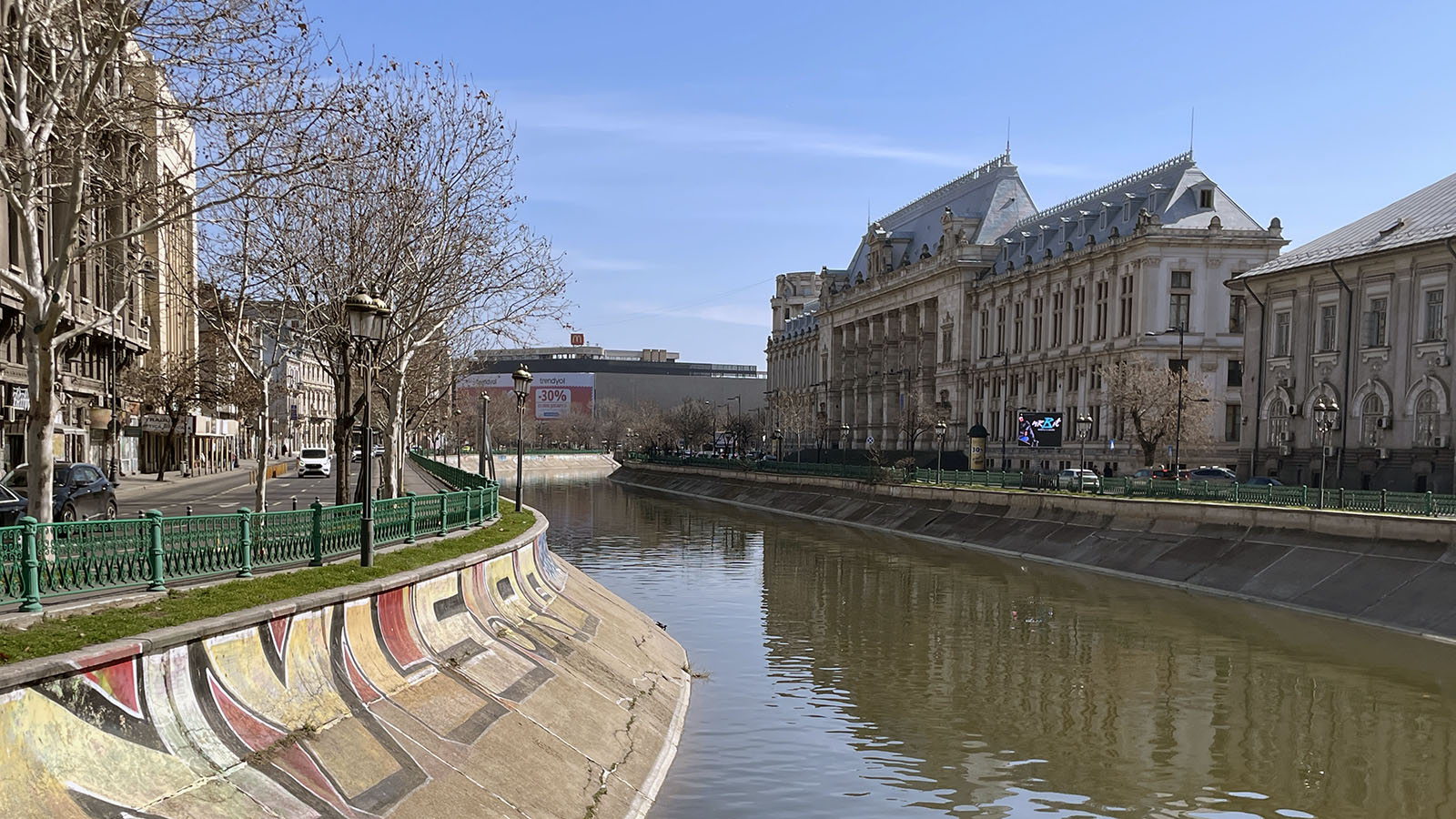Why the Stories We Tell About Ourselves Matter
“If you had told me when I was a senior in high school that in two years, I was going to get to go to Romania, I would not have believed you,” said Aaron Ng T’27.

Ng arrived at Duke intent on studying international relations. During his first semester, he was in the Kenan Institute for Ethics FOCUS cluster on ethics and global citizenship. After he started taking Russian language courses, he became more and more interested in Eastern Europe and chose it as a focal region in his International Comparative Studies major.
After hearing that Say the Thing director Leah Torrey was working on a program in Eastern Europe focused on storytelling and democracy, Ng emailed her. That was the beginning of his relationship with the program.
Say the Thing, a storytelling initiative of Duke Chapel in partnership with the Kenan Institute for Ethics, has created “meaning-making opportunities” around campus for students since its launch in 2023. These range from serendipitous encounters with Larks — pop-up events — to deeper adventures in storytelling — like the six-week Studio, in which students focus on crafting their own individual stories, reflecting on the forces that have shaped their identities.
Ng took part in the Studio as well as a second six-week program called the Civic Studio, in which students turned their gaze to “the big, broader stories we’re told about the United States,” he said, “about our culture, our society, our national mindset.”
Torrey encourages students to delve into their individual stories — and their relationship to the national story — because she believes they inform how we engage civically.
“We live in a very politically tense time, when there’s a lot of things happening at such a high level that oftentimes it feels like it can be really hard for us as individuals to make change,” Ng said. “And so that was one of the themes that we were wrestling with — this idea of individual impact, especially as it pertained to community building and community organizing.”
Finally, in preparation for their trip to Romania, the students shifted their focus to Eastern Europe — in what Ng said was a “very clear intersection” of his majors in Political Science and ICS.
“We’re looking at political structures,” he said, “but we’re also looking at social structures and how they compare to one another in an international context.” In other words, given the different histories of the United States and Romania, “how do these two democracies look the same, and how do they look different?”

The group of six students and two staff members departed for Romania the Friday before spring break. Torrey had structured the weeklong trip around the theme of storytelling, alternating between “macro-story” and “micro-story” days. On their first day in Romania, the group took a walking tour of Bucharest — exploring not only the city, but also the “macro-story” it tells about itself through its monuments and museums.
On the following “micro-story” day, students met with leaders and activists working to confront current challenges in Romania — ranging from a constitutional court justice to students who run a media group that creates accessible content to keep young people more informed about politics.
For Ng, the deep connection between storytelling and democracy is “one of the lessons that sticks out” from the trip.
“The national story informs us about what our place in the country is,” he said. In the United States, for instance, where the Civil Rights Movement is a part of our history, “we perceive ourselves as being capable of doing those things because we have a national story of this kind of civic action.”
In Romania, Ng saw these organizers as working to “shape the national story to inform fellow Romanians that ‘this is actually who we are — we are people who are able to organize and advocate and get things done for the betterment of all.’”
“It was incredible,” Ng said about the trip, which he called his “first real experience” abroad. “I learned so much. I met so many amazing people. I got to see an entirely different part of the world in a light that I feel like I was not prepared for. The first thing I thought when I got back to RDU was, ‘I can’t wait to go back.’ It’s a place that demands that you engage with it more.”
Another life lesson he would share with other students? “Just go out and see the world. Because there’s so much to offer.”
